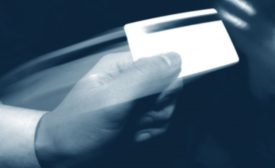Identity Management
How do you know when a smart card is too smart?
ID Cards and Printers: Of Mice and Men
April 1, 2011
Sign-up to receive top management & result-driven techniques in the industry.
Join over 20,000+ industry leaders who receive our premium content.
SIGN UP TODAY!Copyright ©2024. All Rights Reserved BNP Media.
Design, CMS, Hosting & Web Development :: ePublishing







